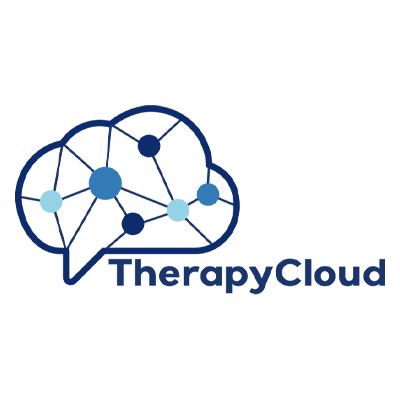The Importance of Sleep and How It Affects Mental Health

How many nights have you tossed and turned, only to wake up feeling drained and on edge?
According to the CDC Behavioral Risk Factor Surveillance System (BRFSS), 36.8% of adults are not getting enough sleep. That means some people walk through life exhausted, unfocused, and stretched emotionally thin. Lack of sleep doesn’t just leave you tired in the morning. It chips away at your mental health, making it harder to manage stress, regulate emotions, and feel like yourself.
Why Sleep Matters for Mental Health
During deep sleep, your blood pressure decreases and heartbeat slows down while your muscles relax and brain activity changes.
This is where the importance of sleep really shows. Without these stages of restorative rest, your brain struggles to regulate stress, focus, and emotional balance. Sleep deprivation disrupts the connection between the amygdala and the medial prefrontal cortex, leading to heightened emotional reactivity and poor decision-making (Neurosciences Journal).
The Negative Cycle of Poor Rest and Mental and Emotional Strain
Here’s the tricky part: poor sleep and mental health issues feed off each other. When you’re sleep-deprived, it triggers anxiety, irritability, and low motivation. At the same time, conditions like depression and Posttraumatic Stress Disorder (PTSD) disrupt sleep patterns, creating a vicious cycle.
For example:
- Insomnia and anxiety go hand in hand. Racing thoughts at night stop you from relaxing, and exhaustion the next day worsens anxious feelings.
- Depression and oversleeping often connect, where people use excessive sleep as an escape, but it leaves them groggier and less motivated.
- Stress and cortisol spikes interfere with natural sleep cycles, leading to shallow, unrestful nights.
Breaking this cycle is essential if you want to stabilize your mood and protect your mental health.
Risk Factors That Weaken the Sleep and Mental Health Connection
Is your sleep pattern taking a toll on your mental well-being? One way to spot the impact is by paying attention to warning signs in your daily life. Waking up exhausted after a full night’s sleep, frequent irritability and mood swings, or struggling with brain fog are clear signs that your sleep is harming your mental health.
Sometimes, the problem isn’t just medical but also lifestyle. Certain habits can disrupt your body’s natural rhythms and leave you feeling drained and unbalanced.
- Inconsistent Sleep Schedule: Going to bed and waking up at random times confuses your body’s internal clock, leading to restless nights.
- Too Much Screen Time Before Bed: Devices like phones, tablets, and TVs emit blue light that interferes with melatonin, the hormone that signals your body it’s time to sleep.
- Excessive Caffeine or Alcohol: Caffeine lingers in your system for hours, keeping your brain wired. Alcohol may make you drowsy, but it disrupts deep sleep via your REM sleep cycle, leaving you unrested.
- Stressful Bedtime Routines: Rushing through work emails or engaging in heated conversations at night triggers cortisol, the stress hormone, right when your body should be winding down.
- Unhealthy Sleep Environment: A room that’s too bright, noisy, or warm prevents your body from entering restorative sleep stages.
Practical Tips for Recharging Your Mind and Body
Small changes have a big impact. Here’s how to create a sleep routine that supports your mental health:
- Stick to a Schedule: Maintain a steady sleep routine by heading to bed and getting up at the same time daily, even on weekends. This trains your body’s natural rhythm and allows for deeper and more restorative sleep.
- Create a Wind-Down Ritual: Swap late-night scrolling for calming activities. Try reading, journaling, or light stretching in low light. These cues signal your brain that it’s time to power down.
- Optimize Your Sleep Environment: Transform your bedroom into a sleep-friendly space. Keep it dark, cool, and quiet. Use tools like blackout curtains, white noise machines, earplugs, or an eye mask to block out disruptions.
- Limit Caffeine and Screens: Caffeine lingers in your system for up to 12 hours. Blue light from phones and laptops suppresses your sleep hormone. Shut down devices at least 1 hour before bed.
- Use Mind-Body Techniques: Mindfulness meditation, breathing exercises, or progressive muscle relaxation ease stress and prepare your body for rest.
Make Sleep a Priority for Your Mental Health
Sleep and mental health are closely connected. Sometimes lifestyle changes alone are not enough to break the cycle of poor rest and emotional strain. Persistent problems such as insomnia, sleep apnea, or trauma-related nightmares require professional care. Therapists can help address underlying issues like anxiety, depression, or stress. And, evidence-based treatment approaches, such as Cognitive Behavioral Therapy for Insomnia (CBT-I), have proven highly effective.
Here at TherapyCloud, we make it easier to find the right support. Our platform connects you with licensed therapists, mental health events, and valuable resources all in one place. By taking steps toward better rest, you invest in your emotional and psychological well-being.


.png)

